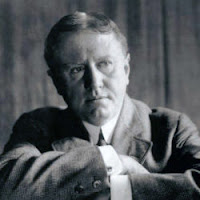“While Coglan was describing to me the topography along the Siberian Railway the orchestra glided into a medley. The concluding air was ‘Dixie,’ and as the exhilarating notes tumbled forth they were almost overpowered by a great clapping of hands from almost every table.
“It is worth a paragraph to say that this remarkable
scene can be witnessed every evening in numerous cafés in the City of New York.
Tons of brew have been consumed over theories to account for it. Some have
conjectured hastily that all Southerners in town hie themselves to cafés at
nightfall. This applause of the ‘rebel’ air in a Northern city does puzzle a
little; but it is not insolvable. The war with Spain, many years' generous mint
and watermelon crops, a few long–shot winners at the New Orleans race–track,
and the brilliant banquets given by the Indiana and Kansas citizens who compose
the North Carolina Society have made the South rather a ‘fad’ in Manhattan.
Your manicure will lisp softly that your left forefinger reminds her so much of
a gentleman's in Richmond, Va. Oh, certainly; but many a lady has to work
now—the war, you know.
“When ‘Dixie’ was being played a dark–haired young man
sprang up from somewhere with a Mosby guerrilla yell and waved frantically his
soft–brimmed hat. Then he strayed through the smoke, dropped into the vacant
chair at our table and pulled out cigarettes.”—American short-story writer
William Sidney Porter, aka “O. Henry” (1862-1910), "A Cosmopolite in a Café,"
in The Four Million (1906)
Recently, I have taken to dipping into more of the
short stories of the writer we know as “O. Henry.” I don’t know how much
the younger generation has been exposed to him in high school or college, but
when I was growing up he was nearly inescapable, cropping up constantly in
anthologies (especially his Christmas tale “The Gift of the Magi,” which I
discussed in this post from over 13 years ago).
As a matter of fact, more certainly than the presence
of a New Yorker-style short story, there is an O. Henry one: i.e., one
featuring an ironic, usually witty, reversal.
Those surprise endings became a trademark for the
writer. The problem, such as it is, boils down to this: When read in bulk, the
novelty wears off.
And when I write “bulk,” I mean bulk. The collection
I’m reading now is called 100 Selected Stories. This paperback is
substantial, totaling more than 700 pages.
But even here, it only begins to tap the writer’s
astonishing output. Estimates of the number of his short stories that I’ve seen
on the Internet range from 300 to “more than 600”—all collected in nine volumes
published from 1904 to 1909, the year before his death.
So yes, after reading one of these stories after
another in rapid succession, you are so sure a surprise is coming that it
ceases to be surprising.
But, as I’ve been discovering by reading him in a
collection as well as in viewing a DVD of a largely forgotten 1957 TV series, The O. Henry Playhouse, starring the great character actor Thomas Mitchell, other
traits of the author besides the surprise twist come to the fore.
The quotation at the start of this current post, for
instance, brought me up short. It highlights one of his less remarked upon but
equally rare skills, as a social historian.
While plying his trade as a short-story writer in the
early 1900s, O. Henry set many of his tales where he lived, in Manhattan—or, as
he put it, “Bagdad-on-the Subway.”
The city was coming into its own as an international
melting pot, and the writer was there to chronicle it all, from society swells
in elegant restaurants and hotels to fleabag dumps on the Bowery.
O. Henry depicted all these characters without
snobbery. He would have felt himself the least inclined of anybody to judge:
After all, he carried with him the secret stigma of serving three years for
embezzling from a bank in Austin, Texas, in the 1890s.
One last point: this passage also reveals O. Henry as
a Southern writer. Such fiction is more than just novels and short
stories written by and/or about people who live below the Mason-Dixon line, or
in the states comprising the vanished Confederacy. The other quintessential
element of such works is storytelling.
O. Henry’s yarns came from sitting around listening
wherever he went. But, as a longtime resident of Texas who started using his pseudonym
in New Orleans while briefly on the lam for his crime, he also had an affinity
for Southerners.
Being too young to have fought in the Civil War for
his native state of Ohio, he would not have heard the “Mosby rebel yell” emitted
by the “dark-haired young man” with a shudder, but with curiosity, and maybe
even affection.
(For more on O. Henry as a social historian with a
Southern affinity, I urge you to read David Madden’s August 2014 article in
the Citizen-Times of Asheville, NC—the city, incidentally, where O.
Henry is buried, near his second wife and daughter from his first marriage.)

No comments:
Post a Comment